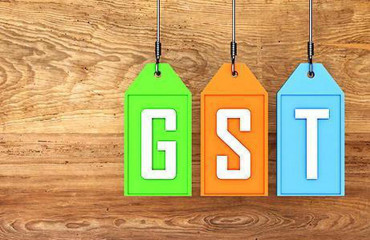
NEW DELHI : As the government looks to bring electricity under goods and services tax (GST), the Union power ministry is looking at its likely impact on the industry, states’ revenue and household electricity bills. Electricity is one of several commodities like petrol, diesel and natural gas that have so far remained out of the purview of GST.
NEW DELHI : As the government looks to bring electricity under goods and services tax (GST), the Union power ministry is looking at its likely impact on the industry, states' revenue and household electricity bills. Electricity is one of several commodities like petrol, diesel and natural gas that have so far remained out of the purview of GST.
Audit and consulting firm Deloitte, which was appointed to analyse the impact of the move, submitted a report to the power ministry that showed the move would benefit industry by lowering its outgo in levies. The ministry has now sought the likely impact of the move on the revenue of states and the electricity bills of retail or domestic power consumers, two people aware of the matter said.
"We have got the view of the industry. GST is expected to make electricity cheaper for industry because it will be able to get input tax credit. But we have not got the perspective of the states and the domestic consumers. And how the move will impact the budget of households," said one of the people mentioned above.
The person further said most of the states opposed the move in a meeting held to know their views as they may lose out on receivable electricity duties. "Some states have higher rates of duty, some have lower rates. The ministry wants to see the overall scenario—which states will lose how much," one of the people mentioned above said. The person added that while the move would smoothen things for industry, "we need to know the impact on the domestic sector, which is politically more sensitive".
Queries sent to the ministry of power and Deloitte remained unanswered till press time.
At present, power utilities pay GST on various capital goods and raw materials they purchase, which get built into the price of the electricity they sell, rather than GST being collected separately from power buyers in the form of a tax that is passed on to the ultimate consumer. Such embedded tax on the electricity price, leads to further 'tax on tax' on the manufacturing sector.
The second person mentioned above said once electricity is brought under GST, manufacturers will be able to set off part of their output tax liability using the credit for the GST paid on electricity, making the sector more competitive.
On the states' part, the second person, who is aware of the discussions between the Centre and states, said one key idea being discussed is to retain state electricity duties at a lower level, while bringing electricity within GST. This could solve the problem of states losing revenue due to the reform.
"The GST rate on electricity, the proceeds of which goes to both the Centre and states, can be kept at an appropriate level, and state electricity duties can be recalibrated to a lower level so that the entire exercise can be revenue neutral for the states, while the industry benefits from a more efficient tax system and the consumer is also protected from any tariff increase," explained the person. "This will broad-base GST and make it more efficient," said the person.
A third person, who is also privy to the Centre-state discussions, said that the state electricity duty, which now varies across states between roughly 1% and 5%, could be kept at a uniform 0.5-1% across the states.
Once electricity is included in GST, coal-based thermal power plants are expected to benefit in a big way given they will be able to use the credit for the taxes paid on various inputs and services they procure, to meet their final GST liability. At present, they are not able to use input tax credits since there is no GST on electricity. If GST rate on electricity is set at say, 5%, coal-based power plants will be able to meet that liability with input tax credits efficiently, said the third person, who also spoke on condition of anonymity.
Coal-based power projects will be able to benefit from the broad-basing of GST more than clean energy and hydro power projects. "This (GST on electricity) would be a test case for further expanding GST to include petrol, diesel, crude oil, natural gas and jet fuel," said the third person.
The move is expected to be implemented in a few years from now. In an interview to Mint on the sidelines of Mint India Public Policy Summit on 26 May, Sushil Kumar Modi, a member of the Rajya Sabha and former deputy chief minister of Bihar, had said that the proposal to include electricity under GST is likely to take another five to 10 years, as states are not yet convinced.
